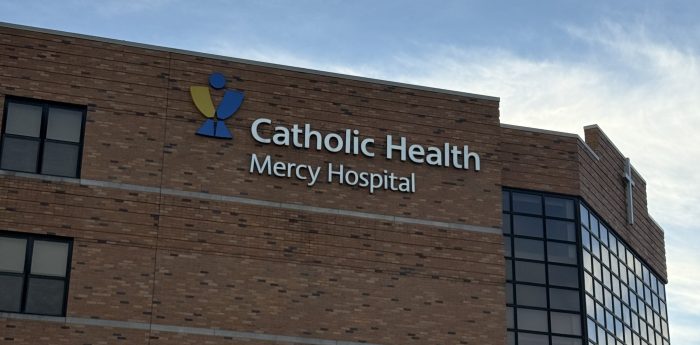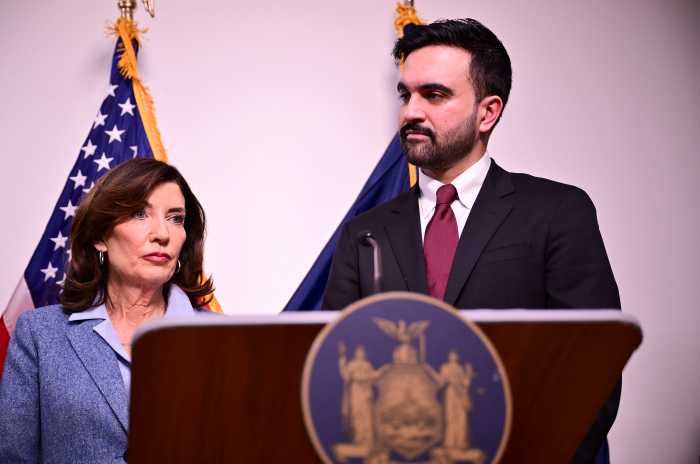A New York State fiscal watchdog board rejected the Nassau County budget for the second year in a row—only the second time the agency issued back-to-back rejections in its 16-year history.
The Nassau Interim Finance Authority (NIFA) voted unanimously Tuesday against approving the county’s $3 billion spending plan for 2017, citing a $36 million projected deficit. Last year, NIFA rejected Nassau’s budget due to more than $80 million in risky revenue projections. The last time NIFA voted down the county budget two years in a row was in 2000, when it was first created, and 2001—both during the administration of former Nassau County Executive Tom Gulotta.
“The administration will continue to work with NIFA and the legislature to address all financial issues,” current Nassau County Executive Ed Mangano, who pleaded not guilty to federal corruption charges last month, said through a spokesman.
NIFA ordered lawmakers to close the budget gap by either raising revenue or cutting spending by Monday, when the legislature is scheduled to vote on a proposal to increase fees that will raise an estimated $15 million in revenue. If the county—which anticipated the rejection after legislators halved a proposed $105 fee on traffic tickets last week amid public outcry—fails to find another $20 million in savings, NIFA threatened to impose cuts itself.
That would be a first. The county plugged budget holes on its own at NIFA’s direction last year as well as in 2000 and 2001. During each of NIFA’s consecutive county budget rejections, Nassau had both questionable finances and troubled leadership.
Gulotta’s years of fiscal mismanagement in the 1990s, which prompted a state bailout and the creation of NIFA to save the county from going broke—combined with investigations into the mistreatment of inmates at the county jail and a federal probe into a contract scandal that ended with the conviction of his top deputy—forced the Republican to decline seeking re-election to a fifth term in 2001.
Now, Mangano, a fellow Republican, has rebuffed calls to resign and not said whether he plans to run for re-election to a third term next year after being charged with taking kickbacks from a county contractor—one of two recent federal cases involving Nassau contracts. The county jail is once again subject of investigation, his top deputy testified that he’s under federal investigation, and during Mangano’s first term, NIFA—balking at Mangano’s counting of borrowing as revenue in the budget—began enforcing its powers as a control board after more than a decade of acting as a monitoring agency.
As for the current fiscal fight, advocates are concerned that $6.5 million in youth services funding—money used to combat the heroin and opioid epidemic—is on the chopping block, along with subsidies to the county bus system and public safety initiatives. What’s more, some are concerned that the budget gap is bigger than $36 million—and could be more than double that.
“The amount of $36 million is less than half of what NIFA should be requiring of the county in order to move the meter on reducing chronic historical and projected deficits—deficits at levels which will require NIFA to maintain a control period that leaves elected officials in the position of being unable to fully exercise the authority of the offices to which they were elected,” said Christopher Wright, an outspoken NIFA board member.
The GOP-controlled county legislature’s Democratic minority leadership, which has been calling for an independent inspector general to investigate county contracts and root out conflicts of interest, was equally pessimistic about the current state of fiscal affairs.
“It is pointless to expect fiscal integrity from the Mangano administration, when there has been no effort to ensure public integrity,” Minority Leader Kevan Abrahams (D-Freeport) said in a statement. “Until there is a change in county government, things will continue to spiral from bad to disastrous. As usual, Mangano and the Legislative Majority are forcing our most vulnerable residents to bear the burden of fiscal mismanagement and a system that is susceptible to public corruption.”

































